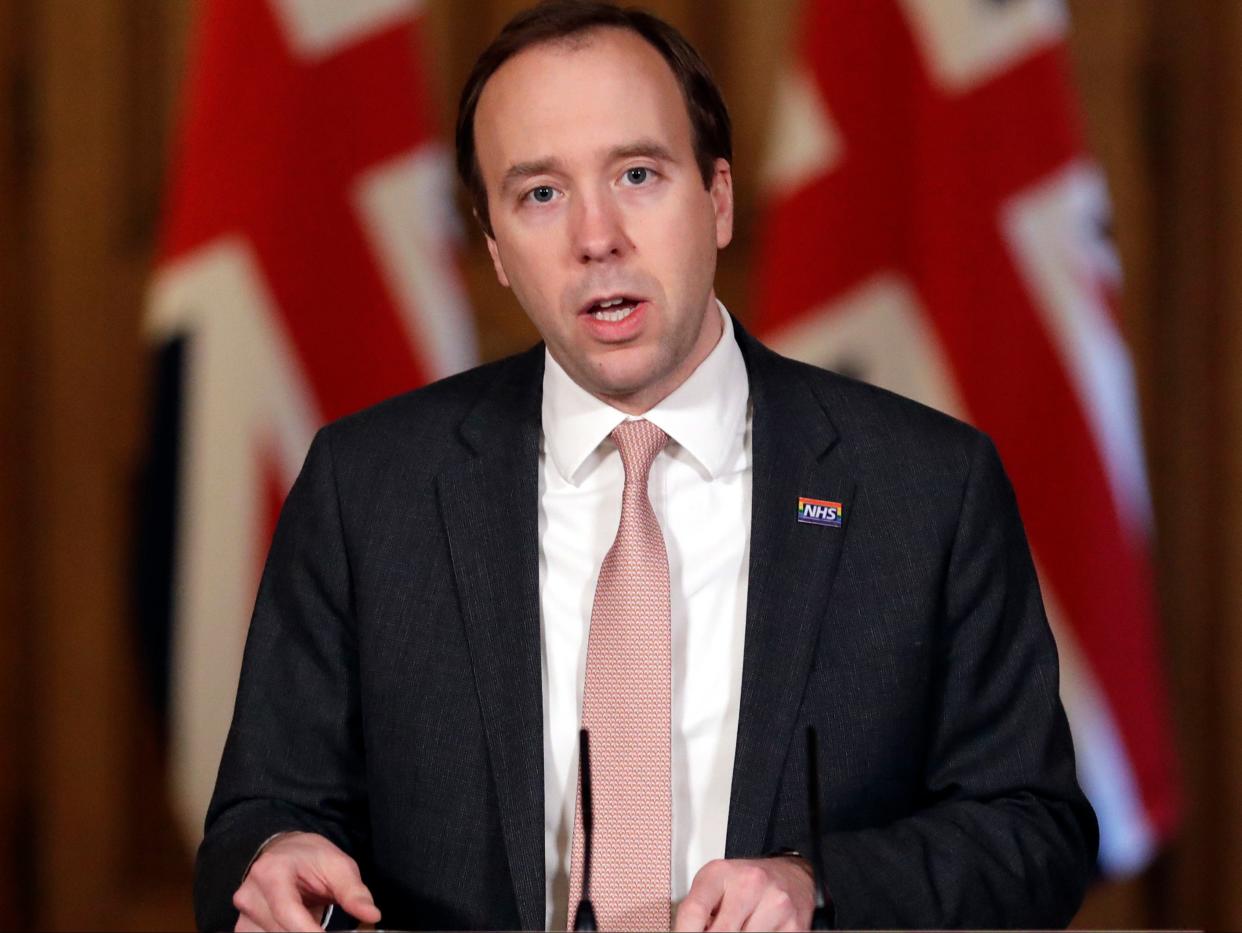Covid: Matt Hancock rules out regional approach to easing lockdown restrictions

Matt Hancock has ruled out a regional approach to ending the coronavirus lockdown in England, insisting “we are going to move down” the current roadmap as one nation.
Similarly to the tail end of the first peak, infections are now falling at different rates across the country, with some areas reporting almost no cases of Covid-19, while elsewhere the numbers have risen in recent weeks.
This has led to calls for the easing of restrictions in parts of England with low numbers of cases, including Plymouth, the Isle of Wight and Brighton.
Ben Bradshaw, MP for Exeter in Devon, where the rate is 49 cases per 100,000, asked the health secretary: “What will be the justification for keeping my constituents locked down and local businesses closed through Easter and beyond because rates somewhere else happened to be higher?”
Mr Hancock replied: "We obviously had a tiered system over the autumn. One of the challenges we found was people travelling from a part of the country where rates are higher to those where they are lower.
"So whilst we don't rule out a localised approach to outbreaks, we are going to move down the roadmap as a nation across England.”
According to government data, Corby in Northamptonshire continues to have the highest rate in England, with 166 new cases recorded in the seven days to 26 February – the equivalent of 229.9 cases per 100,000 people. This is down from 346.2 for the previous week.
Leicester has the second highest rate, having fallen from 256.6 to 207.8, with 736 new cases.
Meanwhile, new data has been published showing that more than half of people aged 80 and over in England have now acquired immunity against Covid-19.
Figures from the Office for National Statistics (ONS) suggested that some 56.4 per cent would have returned a positive result if tested for antibodies in the 28 days up to 11 February.
This is “most likely because of the high vaccination rate in this group”, the ONS said. Across all age groups, one in four people are now thought to have antibodies against the coronavirus.
The latest estimates do not include people in hospitals, care homes or other institutional settings.
London continues to have the highest level of antibody positivity among the regions of England, the ONS said, with an estimated 29.1 per cent for the 28 days to 11 February, while the southwest has the lowest rate, at 16.3 per cent.
A further 343 deaths from Covid-19 were reported by the government on Tuesday, bringing the UK total to 123,296. An additional 6,391 cases were confirmed, meaning that 4,188,400 people in Britain have been infected with the virus since the start of the pandemic.
Government data up to 1 March shows that of the 21.3 million jabs given in the UK so far, 20,478,619 were first doses – a rise of 203,168 on the previous day. Some 844,098 were second doses, an increase of 28,282 on Monday’s figures.
With Britain’s rollout continuing to progress at pace, Mr Hancock told the House of Commons that vaccine invitations were now being sent out to the over-60s.
He said that “although the day-to-day figures of supply are lumpy, we have some bumper weeks ahead later this month.
"Given that our vaccination programme began 12 weeks ago today, from now we begin in earnest our programme of second vaccinations which ramps up over the month of March.
"I can assure the house that we have factored these second jabs into our supply projections and we're on track to meet our target of offering a vaccine to all priority groups, one to nine, by 15 April and all adults by the end of July."
Read More
Scientists and campaigners call for more research into long Covid in children
Weekly Covid deaths fall to lowest level since start of 2021
Pfizer vaccine: Overweight people might need bigger dose, Italian study says

 Yahoo News
Yahoo News 
